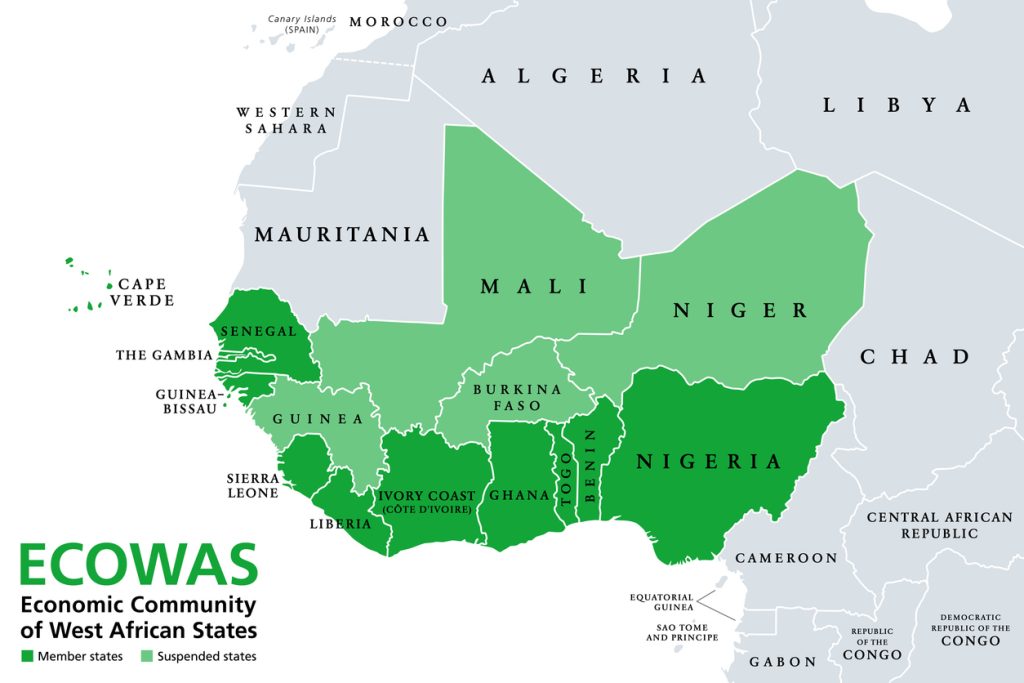The ECOWAS Agricultural Policy (ECOWAP) is a regional framework adopted in 2005 to drive agricultural transformation across the 15 ECOWAS member states. It promotes sustainable agriculture, food sovereignty, rural development, and integration of West African agricultural markets.
The policy emphasizes a modern, inclusive agricultural model that prioritizes family farms while encouraging private sector involvement.
2. Strategic Pillars of ECOWAP
ECOWAP is built on three main pillars:
- Increasing agricultural productivity and competitiveness
- Promoting regional market integration and intra-ECOWAS trade
- Aligning regional trade with global standards while protecting local producers
These objectives aim to reduce food insecurity, fight poverty, and ensure that agriculture drives economic growth and job creation, especially for rural communities.
3. Institutional Structure
The Regional Agency for Agriculture and Food (RAAF) coordinates implementation of ECOWAP. Its functions include:
- Guiding the Regional Agricultural Investment Plan (RAIP)
- Supporting National Agricultural Investment Plans (NAIPs) tailored to each country
- Facilitating coordination among stakeholders, including farmer organizations, NGOs, donors, and national ministries
The ECOWAS Commission works in partnership with technical agencies and development partners to ensure coherence and resource mobilization.
4. Key Achievements
- Regional Food Security Reserve: Designed to respond to food crises with prepositioned stock across countries
- Flagship programs like the Rice Offensive, support for climate-smart agriculture, and harmonization of seed regulations
- Strengthened governance through monitoring tools and improved coordination with national authorities
- Youth and women empowerment initiatives, offering technical training and access to agricultural finance
These actions have helped increase access to inputs, improve food supply, and create opportunities in agricultural value chains.
5. Challenges Facing ECOWAP
Despite progress, several challenges remain:
- Limited intra-regional agricultural trade due to non-tariff barriers, poor infrastructure, and inconsistent regulations
- Underinvestment in agricultural development, with some countries still falling short of the 10% public spending target set under the Maputo Declaration
- Gender inequality, with many women facing restricted access to land, finance, and training
- Climate change and conflict in parts of the Sahel, affecting productivity and food systems
Addressing these barriers requires stronger political will, private sector engagement, and investment in rural infrastructure and services.
6. The Future of ECOWAP
The policy is currently being reviewed to align with the African Union’s new Ten-Year Action Plan for agricultural development. This next phase will:
- Deepen regional integration through harmonized policies and programs
- Improve youth participation and technology adoption in farming
- Boost resilience through agroecology and sustainable practices
- Expand regional trade corridors and reduce logistical bottlenecks
For stakeholders like logistics firms, freight providers, and agro-exporters, the updated ECOWAP will offer more clarity and support for cross-border operations.
✅ Final Takeaway
ECOWAP is ECOWAS’s blueprint for transforming agriculture into a driver of food security, economic resilience, and regional integration. While achievements are notable, continued effort is needed to overcome trade, investment, and climate challenges.
At Travo.ng, we stay informed on regional agricultural policies to help our clients navigate cross-border agro-logistics, secure the right permits, and connect with trade opportunities across West Africa.







